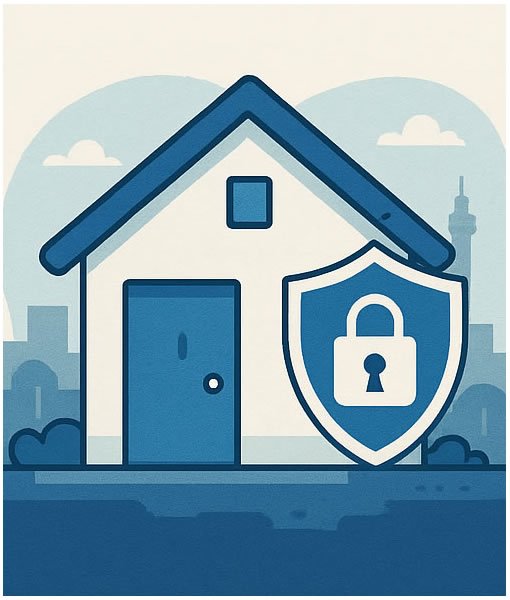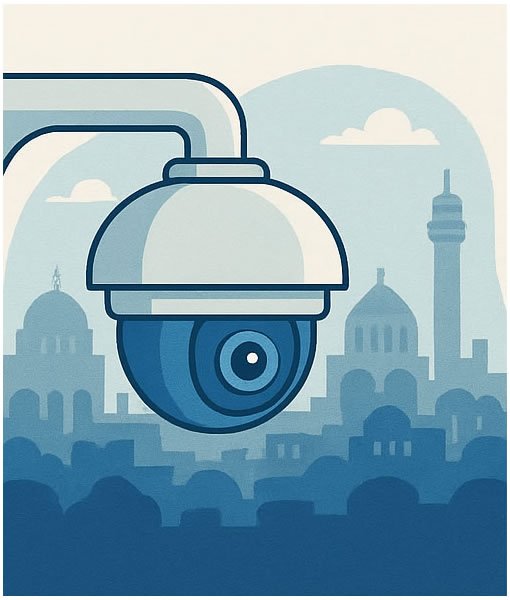In an era of rising security concerns and increased demand for controlled environments, access control systems have become a vital part of both residential and commercial security in Jordan. From biometric fingerprint scanners to automated gates and RFID card readers, today’s technologies offer smart, efficient, and tamper-proof ways to manage who enters your home, business, or facility.
Whether you’re securing an office building in Amman, a residential villa in Abdoun, or a warehouse in Zarqa, understanding the latest in access control solutions is essential.
🚪 What Is Access Control and Why Is It Important?
Access control refers to any system or method used to restrict or monitor access to physical or digital spaces. In Jordan, this has become a key security priority for:
- Government offices
- Schools and universities
- Corporate buildings
- Residential compounds
- Retail spaces and warehouses
The goal is simple: Allow access to authorized individuals only, while keeping intruders out—with a documented trail.
🔐 Key Access Control Technologies in Jordan
1. Biometric Access Systems
These systems use physical traits like fingerprints, facial recognition, iris scans, or even palm veins to grant access. In Jordan, biometric technology is increasingly used in:
- Government and military facilities
- Banks and financial institutions
- Smart homes and villas in Amman
- High-security offices
Biometric systems offer the highest level of security by eliminating the risk of lost keys or shared passwords.
2. RFID & Smart Card Readers
Smart cards and RFID (Radio Frequency Identification) badges are popular in commercial buildings and universities. Users simply tap or swipe their cards to unlock doors or access zones.
Benefits:
- Easy to use and cost-effective
- Can track attendance and movement
- Works well in combination with biometric systems
3. Automated Gates and Barriers
Automated gates are widely used in Jordanian residential compounds, embassies, and private parking areas. These gates often integrate with:
- Remote controls
- License plate recognition
- RFID tags
- Intercom systems
They improve both security and convenience, especially for villas and gated communities.
4. PIN Code and Keypad Access
Used for secondary or backup access, keypads allow entry via a secure passcode. These are ideal for:
- Apartment buildings
- Small businesses
- Internal rooms within larger offices
🏠 Residential Access Control in Jordan
Smart home security is booming in Jordan, particularly in urban areas like Amman and Aqaba. Homeowners are now combining:
- Video door intercoms
- Smart locks with mobile apps
- Fingerprint scanners at entry points
- Automated garage doors
With mobile integration, residents can monitor, open, or lock doors remotely, adding an extra layer of convenience and peace of mind.
🏢 Commercial and Industrial Access Control
For businesses, factories, and government institutions, access control systems ensure that:
- Sensitive areas (like server rooms or vaults) remain protected
- Employee attendance is monitored and recorded
- Visitor entry is logged
- Emergency lockdowns can be triggered when needed
Large-scale systems in Jordan often include multi-factor authentication (e.g., RFID + PIN or fingerprint + face scan).
📜 Local Compliance and Installation Regulations in Jordan
While Jordan doesn’t yet have unified legislation covering all forms of access control, installations must comply with general laws regarding:
- Privacy
- Surveillance system use (as regulated by the Ministry of Interior)
- Wireless devices (approval needed from the Telecommunications Regulatory Commission)
Biometric data, in particular, should be handled responsibly and stored securely, in compliance with privacy protection frameworks.
🧰 Installation and Maintenance Services in Jordan
Several trusted security companies in Jordan specialize in access control installation and system integration:
- iSecure Jordan
- Keyless Solutions Amman
- Biotech Access Systems
- Jordan Smart Gate Systems
These providers offer consultations, custom design, installation, and ongoing maintenance—ensuring your system is scalable and up to date.
🔄 Integration with Other Security Systems
Access control is even more effective when integrated with:
- CCTV surveillance
- Alarm systems
- Fire detection systems
- Smart building management platforms
This creates a unified smart security ecosystem, offering full visibility and control from a central dashboard.
🧠 The Future of Access Control in Jordan
As technology evolves, we’re seeing trends such as:
- Mobile-based access via Bluetooth and NFC
- Cloud-based control panels for remote management
- AI-powered facial recognition with thermal scanners (especially post-COVID)
Jordan’s tech-savvy population and expanding infrastructure make the country a growing market for innovative access control solutions.
✅ Final Thoughts: Secure Access Starts with Smart Planning
Access control isn’t just about security—it’s about managing your space smarter. Whether you’re protecting loved ones at home or sensitive data at the office, Jordan offers a growing range of affordable and advanced access control technologies.
Looking for access control installation in Jordan?
Contact our team for a customized consultation to secure your home or business with the latest in biometric and automated gate technology.


